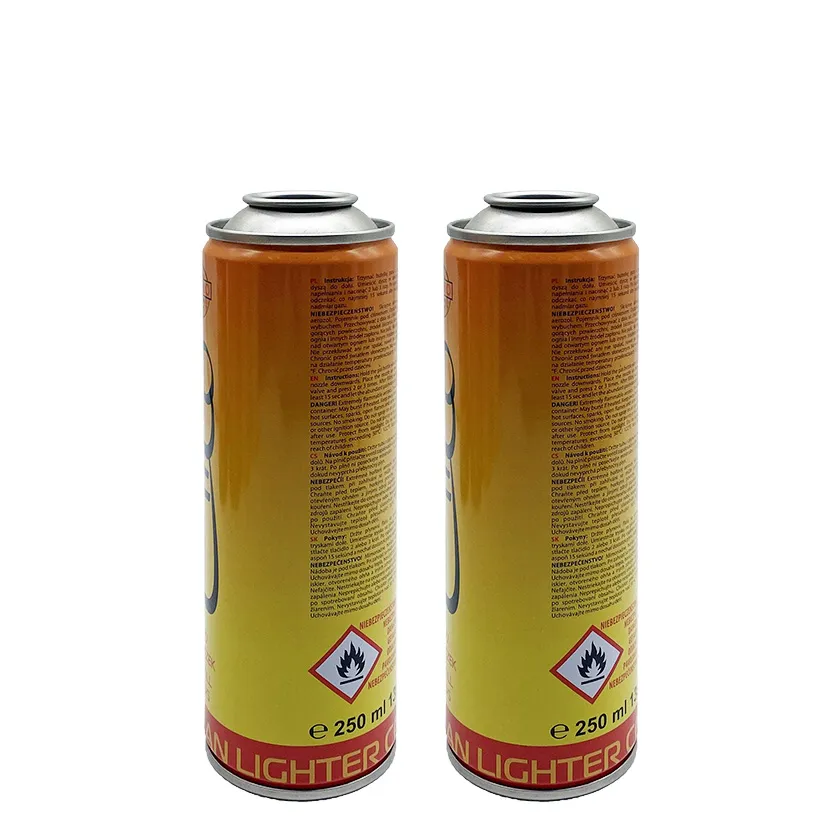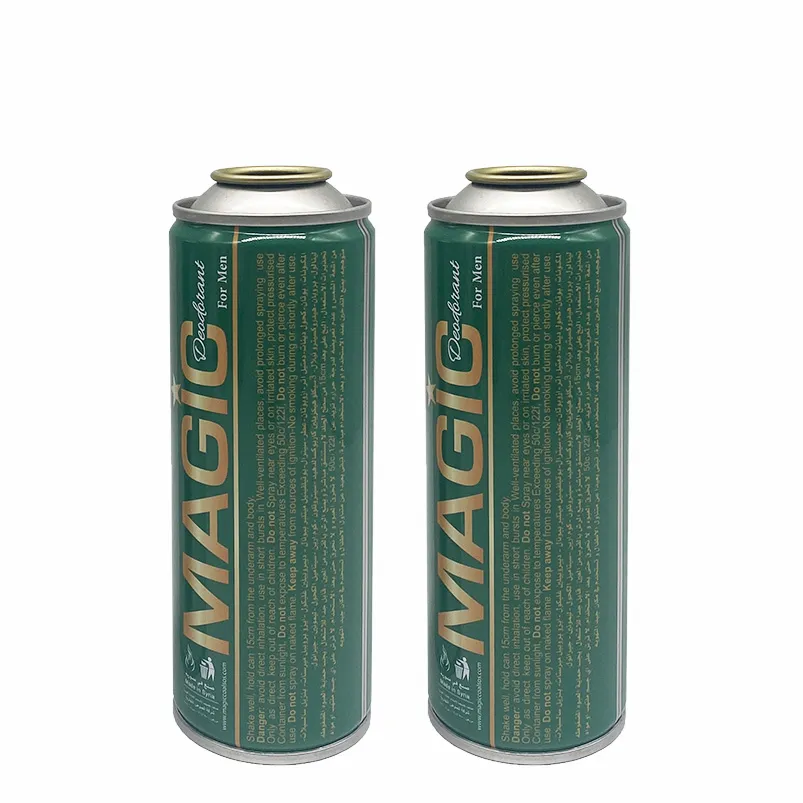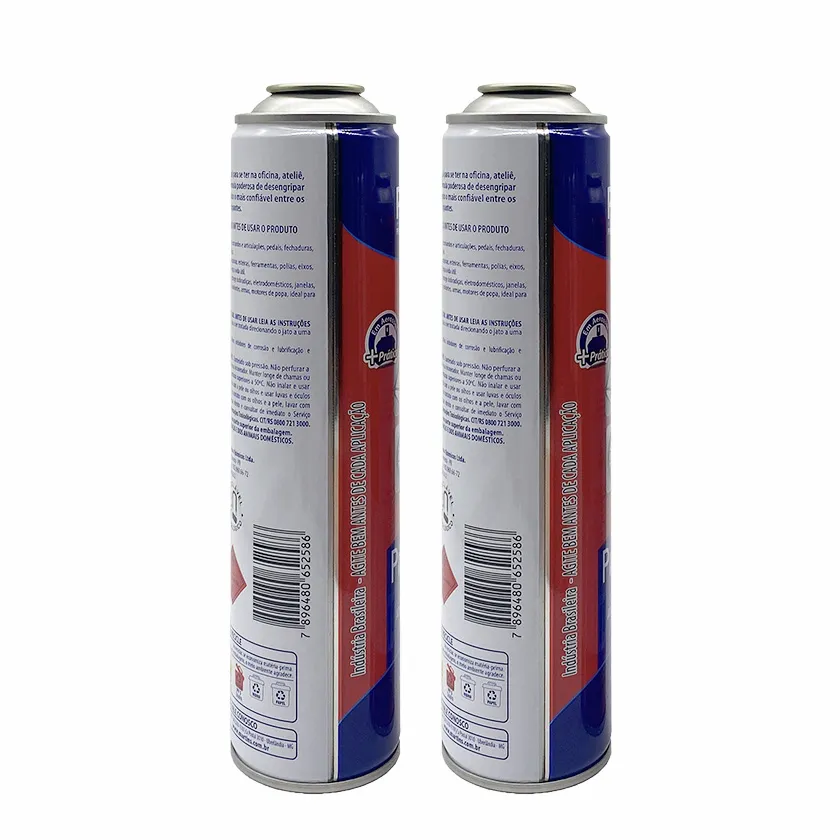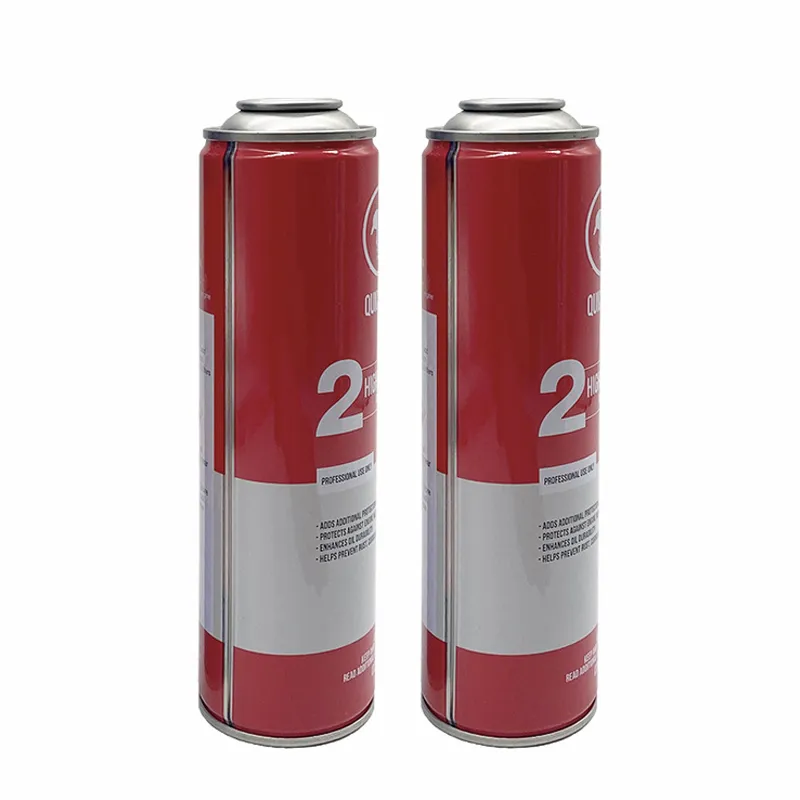In recent years, the frequency of use of tin aerosol cans has been increasing worldwide, and they are widely used in many fields such as personal care, household cleaning, food and industry. However, some countries and regions have imposed strict restrictions or even a complete ban on the use of aerosol tin cans. This phenomenon has aroused widespread concern and discussion.
So why do some countries ban the use of aerosol tin cans? This article will discuss in detail the reasons behind the aerosol tin can ban from multiple perspectives such as environmental protection, safety hazards, health risks and alternatives.

One of the reasons for banning the use of aerosol tin cans: environmental protection considerations
The impact of the use of aerosol tin cans on the environment is one of the main reasons for many countries to implement bans. The propellants and packaging materials in aerosol tin cans will pollute the atmosphere, soil and water sources, seriously threatening the ecological environment.
1. Destroy the ozone layer:
● Chlorofluorocarbons (CFCs): Early aerosol tin can propellants mostly used chlorofluorocarbons (CFCs), which are destructive to the ozone layer. Although CFCs have been banned in most countries, their long-term impact on the ozone layer still exists.
● Alternative propellants: Although most aerosol tin cans have switched to more environmentally friendly propellants, such as hydrocarbons (such as butane, propane) and compressed gases (such as carbon dioxide, nitrogen), these propellants still have a certain impact on the atmosphere.
2. Greenhouse effect:
● Greenhouse gas emissions: Some aerosol tin can propellants, such as hydrocarbon compounds, are greenhouse gases, which will increase the concentration of greenhouse gases in the atmosphere and aggravate global warming.
● Production and transportation process: The production and transportation process of aerosol tin can will also generate a large amount of greenhouse gas emissions, further exacerbating environmental problems.
3. Solid waste:
● Non-degradable materials: Tin aerosol cans are usually made of metals and plastics, which are difficult to degrade in the natural environment, resulting in a large amount of solid waste accumulation.
● Difficulty in recycling: Since tin aerosol cans contain residual propellants and liquid components, the recycling process is complicated and costly, resulting in many aerosol tin cans being discarded at will, causing environmental pollution.

Reason 2 for prohibiting the use of aerosol tin cans: Consideration of safety hazards
There are still many safety hazards in the use of aerosol tin cans, especially in high temperature and flammable environments, the safety issues of aerosol tin cans are more prominent.
1. Explosion risk:
● High-pressure container: Aerosol tin cans are essentially high-pressure containers, which may explode when hit, punctured or exposed to high temperatures. Explosions can not only cause property damage, but also casualties.
● Flammable substances: Many tin aerosol cans contain flammable propellants, such as butane and propane, which are very easy to burn and explode when encountering a fire source, increasing the risk during use and storage.
2. Risk of misuse:
● Misuse by children: Aerosol tin cans are small in size and simple to operate, and are easily misused by children, causing safety accidents.
● Risk of misuse: Some chemical ingredients in aerosol tin cans are harmful to the human body. Misuse may cause health problems such as poisoning and burns.
Reason 3 for prohibiting the use of aerosol tin cans: Consideration of health risks
The chemical ingredients in aerosol tin cans may also have adverse effects on human health, especially long-term contact may cause various health problems.
1. Inhalation of harmful gases:
● Chemical substances: Certain chemical ingredients in tin aerosol cans, such as solvents and propellants, may have adverse effects on the respiratory and nervous systems after inhalation, leading to symptoms such as headaches, nausea, and difficulty breathing.
● Allergic reactions: The fragrances and preservatives in some tin aerosol cans may cause health problems such as skin allergies and respiratory allergies, especially for sensitive people and children.
2. Skin contact:
● Chemical burns: Chemical substances in aerosol tin cans may cause chemical burns, skin irritation and other problems if they come into direct contact with the skin.
● Long-term exposure: Long-term use of aerosol tin cans containing harmful chemical ingredients may lead to chronic health problems, such as skin diseases and endocrine disorders.

Reason 4 for banning the use of aerosol tin cans: Development of alternatives
With the advancement of technology and the enhancement of environmental awareness, many countries have begun to promote alternatives to aerosol tin cans to reduce environmental and health risks.
1. Manual sprayer:
● No propellant: The manual sprayer does not contain propellant, and sprays the liquid by manual pressure, avoiding the impact of propellants on the environment and health.
● Environmentally friendly materials: Manual sprayers are usually made of renewable materials, which are easier to recycle and degrade, reducing the generation of solid waste.
2. Electric sprayer:
● Rechargeable design: The electric sprayer is battery-powered and sprays the liquid by pressurizing an electric pump, avoiding the safety hazards of high-pressure gas.
● Multi-functional application: The electric sprayer can adjust the spray mode according to different needs, suitable for a variety of scenarios, and more convenient to use.
3. Solid and gel alternatives:
● Solid fresheners: such as solid air fresheners, solid deodorants, etc., avoid the use of liquid and gas components in tin aerosol cans, reducing environmental and health risks.
● Gel products: such as gel hand sanitizers, gel conditioners, etc., provide functions in gel form, avoiding the use of aerosol tin cans.
Reason 5 for banning the use of aerosol tin cans: promotion of policies and regulations
Some countries and regions have imposed bans or restrictions on the use of tin aerosol cans, mainly for environmental protection and public health considerations.
1. International conventions:
● Montreal Protocol: The Montreal Protocol signed in 1987 aims to protect the ozone layer and gradually phase out ozone-depleting substances including CFCs, which has an important impact on the aerosol tin can industry.
● Paris Agreement: The Paris Agreement reached in 2015 requires countries to take measures to reduce greenhouse gas emissions and encourages the reduction of products that have a negative impact on climate change, including certain aerosol tin cans.
2. National and regional regulations:
● EU: The EU strictly restricts the use of aerosol tin can products containing volatile organic compounds (VOCs) and greenhouse gases, and encourages the use of environmentally friendly alternatives.
● USA: The US Environmental Protection Agency (EPA) has implemented strict supervision on the production and use of aerosol tin cans, especially restricting aerosol tin cans containing CFCs and other hazardous substances.
● China: In recent years, China has also increased its supervision of the aerosol tin can industry, gradually eliminated high-pollution and high-risk aerosol tin can products, and promoted the development of green and environmentally friendly products.

Conclusion
As a convenient packaging form, tin aerosol cans play an important role in modern life. However, its potential risks to the environment, health and safety cannot be ignored. It is based on these considerations that some countries and regions have imposed bans or restrictions on the use of tin aerosol cans.

